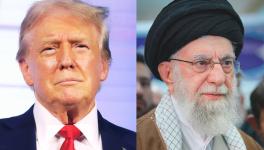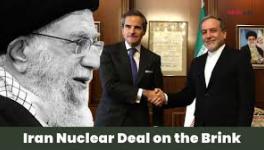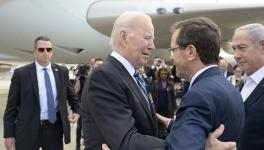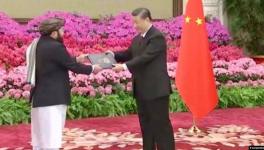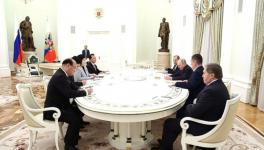Why Biden Can’t Woo West Asia
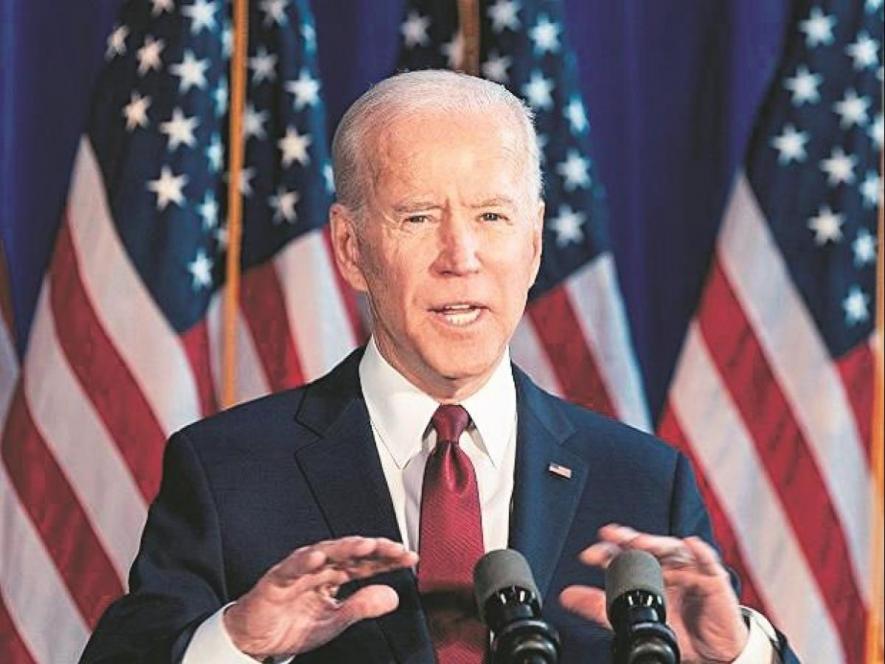
For decades, US policy in West Asia has relied on coordination with the Saudi-led Gulf states, Israel, Egypt and Turkey. Since the Obama administration, however, relations between Washington and its core regional allies in West Asia have floundered, confounding the United States’ ability to manage West Asian crises and formulate consensus in the region.
Washington’s troubled relations with its West Asian allies have become particularly pronounced since Russia began its invasion of Ukraine. Though all the West Asian countries that are American allies—Saudi-led Gulf states, Israel, Egypt and Turkey—condemned Russia at the UN Resolution in March for starting a war with Ukraine, only Israel has implemented sanctions, albeit minimally.
The reluctance to impose sanctions by the United States’ allies in the West Asian region reflects their intention to avoid antagonising Russia, which is increasingly influential in the region, and also reflects their dissatisfaction with Washington and confirms the perception that its influence in the region is waning.
US relations with Saudi Arabia began to deteriorate notably in 2015. The Iran nuclear deal implemented by former President Barack Obama caused considerable alarm in Riyadh, while Saudi Arabia’s intervention in Yemen, which also began that year, received only lukewarm US support. Obama’s successor, President Donald Trump, took a more pro-Saudi approach upon entering the White House in 2017, traveling to Saudi Arabia on his first foreign trip as president and increasing weapons sales to the country.
President Joe Biden, however, adopted a hard stance against Saudi Arabia during his 2020 presidential campaign. He declared he would make Saudi Arabia a “pariah” if elected, criticised Saudi policies in Yemen and called for the country to take accountability for the 2018 assassination of Saudi journalist Jamal Khashoggi.
These foreign policy stances taken during Biden’s presidential campaign continued after he became president. Weeks after entering office in 2021, Biden released a 2018 US intelligence report on the assassination of Khashoggi—which concluded that the assassination in Turkey was carried out “on behalf of” Saudi Crown Prince Mohammed bin Salman, “who considered the regime critic a threat to the kingdom”—paused weapons sales to Saudi Arabia, announced an end to US support for the Saudi campaign in Yemen and removed Yemen’s Iran-backed Houthi rebels from the US terrorism list.
Biden’s intent to downsize US presence in West Asia, part of an ongoing trend seen since the Obama administration, has also caused alarm in Riyadh. The Saudis have long relied on the US presence to deter threats in West Asia, from when Saddam Hussein ruled Iraq to Iran today, and Biden’s remarks spelling out the United States’ diplomatic stance in the West Asia have further enhanced Saudi fears over its own security.
In 2021, more than 300 Houthi drone and missile attacks hit Saudi Arabia, and there have been recent attacks on the United Arab Emirates by the Houthi rebels as well. The UAE has also joined the Saudi-led campaign in Yemen.
The Gulf States’ deteriorating security situation and the belief that the US is unwilling to provide satisfactory assistance to them have instigated Arab attempts to diversify their security guarantors. In August 2021, for example, Saudi Arabia and Russia signed a military cooperation agreement “aimed at developing joint military cooperation between the two countries.” The UAE agreed to purchase dozens of French Rafale jets and helicopters in December 2021 and signed a multibillion-dollar contract with South Korea for an air defence system (based on a Russian design) in January 2022.
It was also revealed in December 2021 that Saudi Arabia was building its own missiles with Chinese assistance, while a suspected Chinese military base under construction in the UAE was shut down in November 2021 following pressure from the US.
Leaders of both Saudi Arabia and the UAE have recently declined calls from Biden to discuss the Ukraine crisis soon after Russia attacked the country, while Riyadh also rejected US calls to increase oil production and help lower oil prices in mid-February 2022. And in March 2022, Saudi Arabia and Qatar criticised the West for the resolute response to Russia in Ukraine while neglecting crises in West Asia.
Israel’s relationship with the US has also fluctuated in recent years. Obama and former Israeli President Benjamin Netanyahu shared a strained relationship over Palestine as well as the 2015 nuclear deal with Iran. US-Israeli ties were revived under Trump, who moved the US embassy to Jerusalem, recognised Israeli sovereignty over the Golan Heights and took a more forceful approach against Iran (including cancelling the Iran nuclear deal).
But the Biden administration’s renewed efforts to reimplement the Iran nuclear deal, coupled with warnings over Israel’s expansion of settlements in the West Bank, have complicated US-Israeli relations again. Russia’s influence over Iran and Syria has also made Israel cautious of condemning the Kremlin, lest it may need Moscow’s assistance to alleviate future crises with both these countries.
Perceptions persist in Egypt that the US abandoned former Egyptian President Hosni Mubarak in 2011 after he faced nationwide protests as part of the wider Arab Spring. Following his downfall, the Muslim Brotherhood under Mohammed Morsi led the country for more than a year until a military coup, denounced by the White House, deposed him in 2013.
Biden has taken a tepid approach to build back the United States’ relationship with Egypt under President Abdel Fattah el-Sisi, who has led the country since 2014. While the US has maintained its military assistance to Egypt, it cut $130 million in military aid to Egypt in January 2022 over human rights concerns in the country. The move blunted Egyptian enthusiasm for a tough response against Russia after its invasion of Ukraine the following month.
Raising tensions with Russia over Ukraine will also have drastic consequences for Egypt’s food security. Ukraine and Russia are both major food exporters to Egypt, and the spike in grain prices in 2010-2011 played a major role in raising public frustration that culminated in the Arab Spring. Cairo will not jeopardise its fragile food situation further by sanctioning Russia. Moreover, increasing military and energy ties between Egypt and Russia since 2014 have also helped cement positive relations between the two countries.
The degradation of the US-Turkish relationship over the last decade has also become increasingly obvious. President Recep Erdoğan has faced US criticism over his domestic policies, while many in Turkey have accused the US of involvement in the attempted coup that almost removed Erdoğan from power in 2016.
In 2018, the Trump administration imposed sanctions on Turkey’s aluminum and steel exports following rising tensions between the two countries. The following year, in 2019, Turkey agreed to purchase Russia’s S-400 air defence system, leading to Turkey’s removal from the F-35 Joint Strike Fighter program with the U.S, and more US sanctions were imposed on Turkey in December 2020.
Turkey has also increased its economic relationship with Russia through energy deals, tourism ties and trade. Russia is Turkey’s largest importer, and their burgeoning economic relationship has continued to develop despite the shooting down of a Russian bomber by Turkish jets while it was flying over Syria in 2015—according to Russia—as well as their opposing sides in proxy wars in Libya, Syria and the former Soviet Union countries.
So far, Turkey has opposed sanctions on Russia, and has called on the West to avoid isolating Russia and, instead, look at focusing on dialogue as the way forward in the Russia-Ukraine conflict. Clearly, Russia’s strained relations with major US allies in the region, notably Turkey and Saudi Arabia, have not prevented the Kremlin from leveraging its power in West Asia to prevent greater regional blowback for its invasion of Ukraine.
The United States’ dismissal of Egypt’s Mubarak in 2011, alongside the Biden administration’s current rapprochement with Iran, has again underlined the bipolar nature of US foreign policy in an already unstable region. In comparison, Russia’s support for Syrian President Bashar al-Assad in the Syrian civil war has shown the Kremlin is willing to consistently back its allies even when they themselves are under intense pressure.
The belief that the US cannot offer its traditional West Asian allies meaningful support means their allies are naturally wary of upsetting Russia, which, thanks to its more coherent strategy in West Asia in recent years, has greatly increased its regional influence. With nothing new to offer them, the Biden administration risks seeing American allies continue to drift away in the region.
John P. Ruehl is an Australian-American journalist living in Washington, D.C. He is a contributing editor to Strategic Policy and a contributor to several other foreign affairs publications.
This article was produced by Globetrotter
(Note: Newsclick has made some style-related changes in this article)
Get the latest reports & analysis with people's perspective on Protests, movements & deep analytical videos, discussions of the current affairs in your Telegram app. Subscribe to NewsClick's Telegram channel & get Real-Time updates on stories, as they get published on our website.









